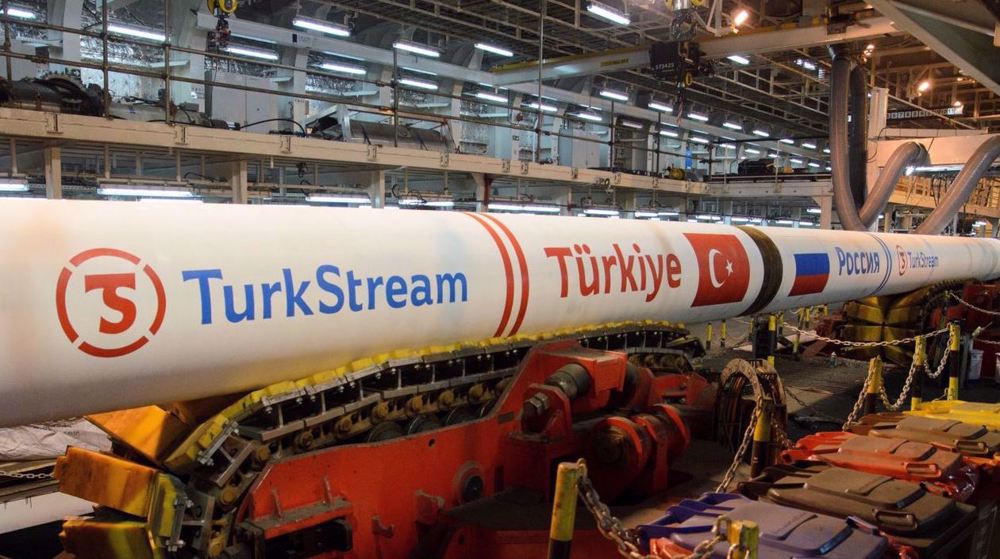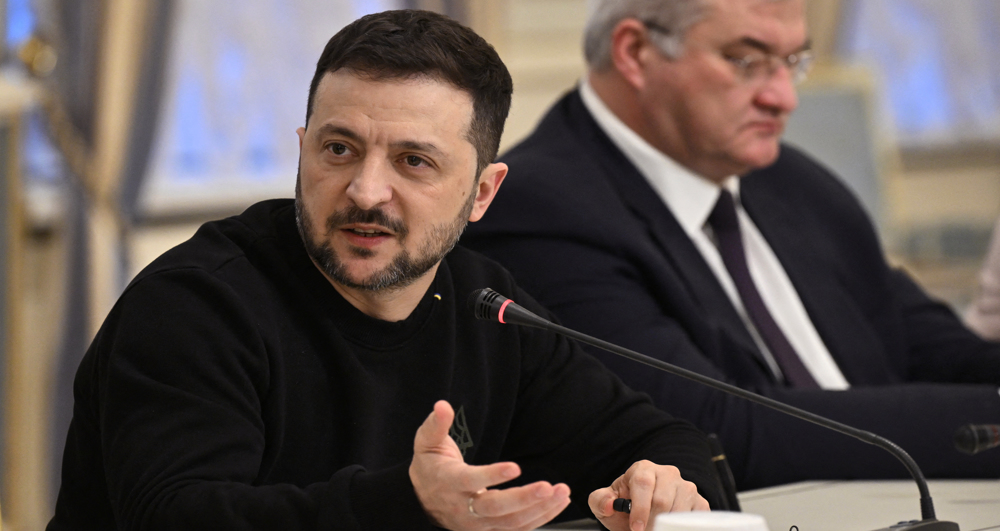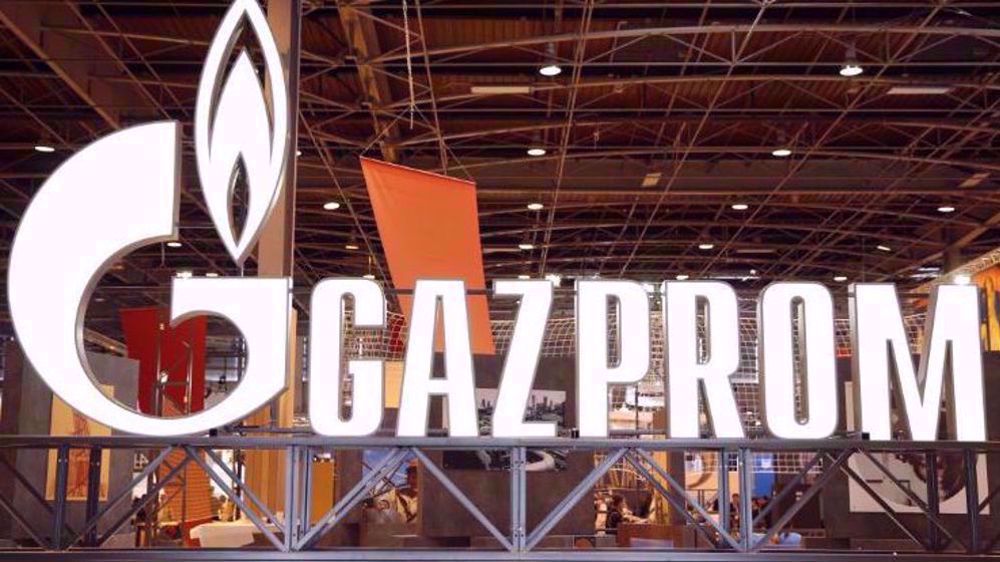Lavrov denounces 'destructive' US policy in Venezuela as Russia takes sides with Maduro
Russian Foreign Minister Sergei Lavrov has lashed out at the United States for its "destructive" policy on Venezuela, after Washington threw its weight behind the anti-government opposition and its self-proclaimed president despite international support for President Nicolas Maduro's legitimate government .
"The (US) policy concerning Venezuela, as with many other countries, is destructive in my opinion," he said, adding that "this (US) behavior is unacceptable. It undermines the principles of the UN Charter and the international community's standards,” Lavrov said during a press conference with his Moroccan counterpart, Nasser Bourita, in Morocco’s capital of Rabat on Friday.
The Russian foreign minister also called on the Venezuelan opposition group "not to be pawns in someone else's dirty game.”
Venezuela plunged into a political crisis earlier this week when a group of soldiers rose up against Maduro and sparked a number of protests that led to rival rallies between the socialist leader's supporters and opponents.
The president of the Latin American country's opposition-led National Assembly, Juan Guaido, then declared himself interim president of the country, a move that was immediately recognized by the administration of US President Donald Trump.
On Thursday, Russian President Vladimir Putin voiced support for the Maduro government "in the context of a domestic political crisis that has been provoked from the outside.”
Putin pledged to support Maduro against a “destructive external interference that grossly violates the most basic norms of the international law.”
Besides Russia, a number of other countries including Iran, China, Turkey, Bolivia, Mexico and Cuba have also sided with Maduro and condemned outside interference in Caracas.
At least 20 people have been reportedly killed in Venezuela's recent clashes, prompting UN High Commissioner for Human Rights Michelle Bachelet to call on Friday for an independent investigation into the deaths.
Shortly after the Trump administration's recognition of Guaido as Venezuela’s acting president, Maduro said he was severing diplomatic and political ties with Washington, ordering the closure of Venezuela’s embassy and consulates in the US.
The Venezuelan president also gave officials in the US diplomatic mission in Caracas 72 hours to leave the country.
New US special envoy appointed for Venezuela
Also on Friday, US Secretary of State Mike Pompeo announced Elliot Abrams as the newly appointed special envoy for Venezuela during a press conference in Washington DC.
The 71-year-old Abrams, a known US foreign policy hawk, has served as a top official for all Republican presidents since Ronald Reagan.
Pompeo said during the presser that the US State Department was focused on "ensuring the protection of all those folks that are under our chief of mission authority there in Venezuela."
The US secretary of state is also to press UN Security Council members to recognize Guaido as acting president of Venezuela during an upcoming crisis meeting.
Maduro: US training 'gringo agent' Guaido
During a televised speech in Caracas on Friday, Maduro accused the self-declared president of working on behalf of the United States.
"I know who he [Juan Guaido] is. He is an agent of the 'gringos' in Venezuela. They trained him as an agent and they put him in politics. He is an agent of the government of the United States, he knows and will receive and will fulfill orders from them," Maduro said.
The Venezuelan leader also welcomed Pompeo's call for an emergency meeting of the UN Security Council to address the situation.
"I welcome it, it's what we wanted. I was about to tell the chancellor, 'Ask for a debate in the Security Council.' Mike Pompeo beat me to it, he was faster than me. Thanks Mike. Thank you very much, Mr. Pompeo," Maduro added.
Maduro was sworn in for a second term earlier in January, after a vote marred by an opposition boycott and claims of vote-rigging.
Oil-rich Venezuela is currently mired in economic turmoil, with people grappling with hyperinflation, power cuts and shortages of basic items.
Maduro and his supporters accuse the US for being behind the country’s economic crisis, saying Washington is plotting to topple the government.
The US has a long record for “regime change” campaigns in Venezuela and other south American countries.
US interventions in Latin America, a timeline compiled by the Associated Press (AP):
1846: The United States invades Mexico and captures Mexico City in 1847. A peace treaty the following year gives the US more than half of Mexico’s territory — what is now most of the western United States.
1903: The US engineers Panamanian independence from Colombia and gains sovereign rights over the zone where the Panama Canal would connect Atlantic and Pacific shipping routes.
1903: Cuba and the US sign a treaty allowing near-total US control of Cuban affairs. US establishes a naval base at Guantanamo Bay. US Marines repeatedly intervene in Central America and the Caribbean throughout the first quarter of the 20th century, often to protect US business interests in moments of political instability.
1914: US troops occupy the Mexican port of Veracruz for seven months in an attempt to sway developments in the Mexican Revolution.
1954: Guatemalan President Jacobo Arbenz is overthrown in a CIA-backed coup.
1961: The US-backed Bay of Pigs invasion fails to overthrow Soviet-backed Cuban leader Fidel Castro but Washington continues to launch attempts to assassinate Castro and dislodge his government.
1989: US invades Panama to oust strongman Manuel Noriega.
1994: A US-led invasion of Haiti is launched to remove the military regime installed by a 1991 coup that ousted President Jean-Bertrand Aristide. The invasion restores Aristide.
2002: Venezuelan President Hugo Chavez is ousted for two days before retaking power. He and his allies accuse the US of tacit support for the coup attempt.
2009: Honduran President Manuel Zelaya overthrown by military. US accused of worsening situation by insufficient condemnation of the coup.
Hamas thanks Iran, Resistance Front following achievement of ceasefire in Gaza
'Capitulation': Israeli officials and media concede Gaza defeat as truce unfolds
'Gaza has won': Social media users react to ceasefire with mix of relief, joy
Iran seeks South Korea’s assistance for AI, fiber-optic projects
VIDEO | Iran's 'Eqtedar' (Power) maneuver
Israel hits HTS military target in Syria for 1st time since fall of Assad
VIDEO | Press TV's news headlines
Israel has slaughtered 13,000 students in Gaza, West Bank













 This makes it easy to access the Press TV website
This makes it easy to access the Press TV website